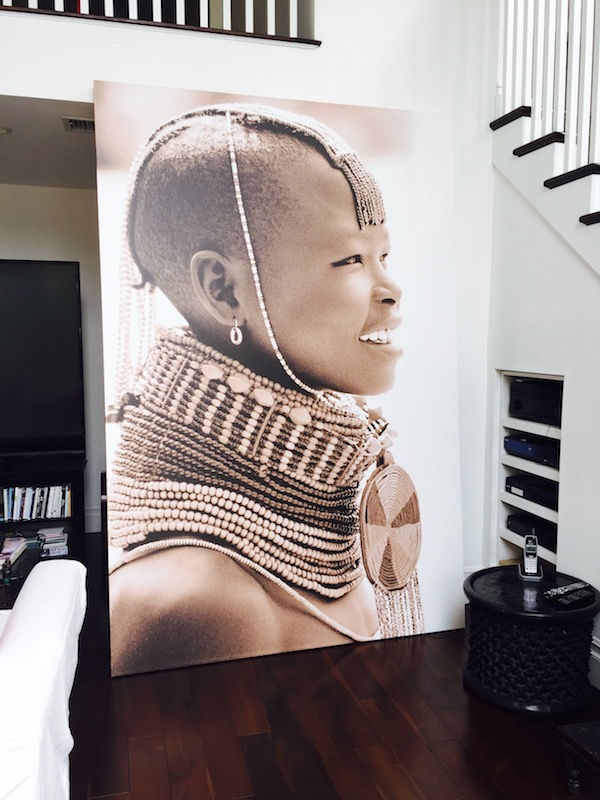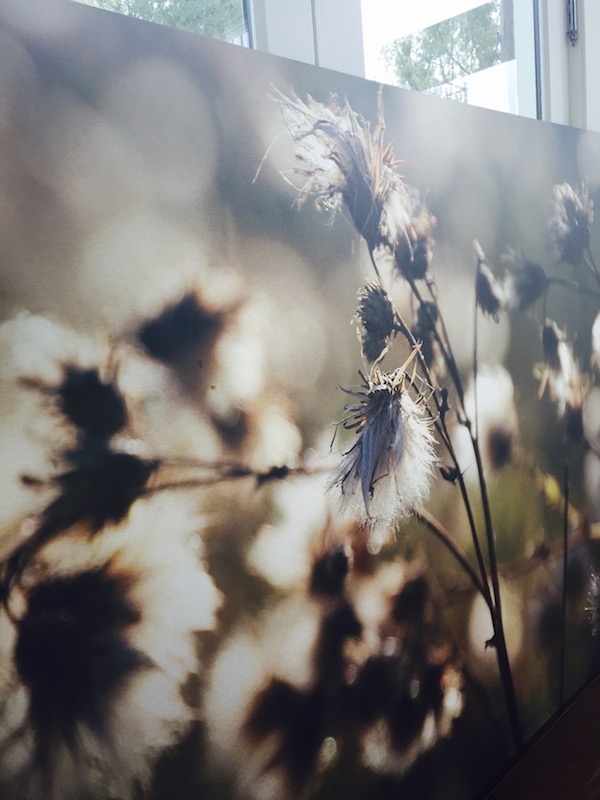Fine art photographer Lekha Singh describes a photograph she took in Kenya: “We could feel the heat below us even before the plane landed on a small dirt airstrip. Brown scrub, dry grass, thorny acacia was all there was in the unbearable heat. Suddenly, these boys appeared, running out of the bush to greet us.”
I then see a photo of an old man taking a siesta on a bench in a park in San Miguel de Allende. I also see a photo of dust storms at Burning Man, in the Nevada desert, and a photo of several people dancing around brightly colored pianos placed on the streets of New York. Lekha’s eyes curl upwards when she talks about the photo of a woman with what appears to be an impossibly heavy clay pot on her head, “This woman in Tanzania was going down to the lake to fill this pot with water and bring it back for cooking and drinking. Women carry high amounts of weight on their heads around the world.” Surprisingly, all I see is intense beauty and I suddenly realize that I have borrowed her eyes, which seem tuned to only discover beauty.

Lekha’s work explores our capacity to recognize the familiar in the foreign and the strange. “For more than a decade I’ve traveled to distant and wild places; from the slums of Mumbai to the mountains of Kenya, from the Arctic ice to the dry desserts of Namibia,” she explains. “I have drunk tea with women in Afghanistan, shared rotis with the Bishnois in Rajasthan, was given a Masai name by the Masai tribe in Kenya, met shamans in the Kalahari Dessert, and sang songs with the Inuit close to the Arctic Circle.”
Lekha’s newest body of work, the Weeds series, is like nothing any other fine photographer has ever shown. She uses large brushed aluminum sheets to portray wild weeds throughout the world, illuminating the transcendent beauty in what is commonly overlooked. For this, she was inspired by the Japanese aesthetic Wabi-sabi, which reveres impermanence, authenticity, and imperfection. Pritzker Prize winner Tado Ando said it best: “Wabi-sabi is the kind of quiet, undeclared beauty that waits patiently to be discovered. It’s a fragmentary glimpse: the branch representing the entire tree, the moon 90 percent obscured behind a ribbon of cloud. It’s a richly mellow beauty that’s striking but not obvious.” Each one of Lekha Singh’s photographs is a letter to everyone she knows. For those she does not know, each photograph is an unfinished conversation.

Lekha Singh’s photographs have been displayed in museums throughout the United States. Her work can be seen on Facebook and her website.
Top image: Weeds 4 Limited Edition, 4’x6′ in Dibond Aluminum by Lekha Singh
